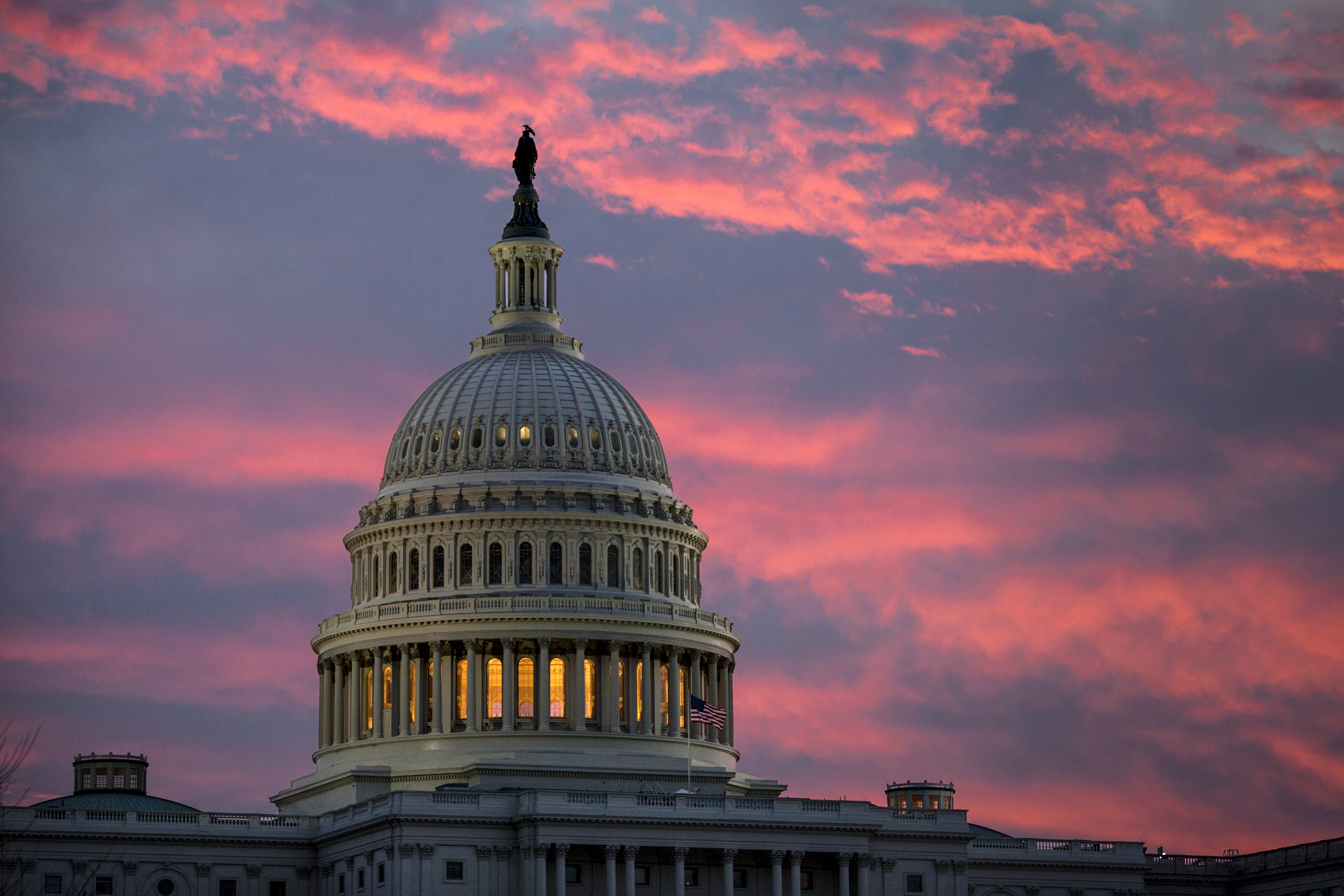In praise of moderation
For democracy to work, parties need to meet in the middle


A free daily email with the biggest news stories of the day – and the best features from TheWeek.com
You are now subscribed
Your newsletter sign-up was successful
Beware the purists. To get anything done in this messy, contentious world, you have to accept that other people have different values and objectives than you do. The trick is to find some overlapping middle ground where you get part of what you want. In a divided democracy of 330 million people, compromise is essential; as Washington politicians once implicitly understood, half a loaf is better than none. But in recent years, our politics have become deeply polarized, as the bases of the Republican and Democratic parties have moved further right and left, respectively. Cutting deals has become a lost, or perhaps abandoned, art. That's why the government briefly shut down last weekend. It's why forging a compromise on immigration that can pass both houses of Congress — and get past presidential adviser Stephen Miller's veto — will be so difficult. Both parties' bases are demanding total victory, and calling congressional leaders who are willing to take half a loaf wimps and sellouts.
Most Americans, I believe, still fall somewhere within a few degrees of center on the political spectrum, and instinctively distrust extremists. But in an overwrought political climate defined by the shouting partisans on cable news, moderation and compromise have fallen into ill repute. That's a guarantee of gridlock and dysfunction. In a defense of moderation, conservative writer Peter Wehner has pointed out that a smart strategist can be driven by moral ideals even while charting a pragmatic course. "Moderation," he says, "takes into account what is needed at any given moment; it allows circumstances to determine action in the way that weather patterns dictate which route a ship will follow." Victories achieved without some buy-in from the opposition are often short-lived — and followed by intense backlashes that can wipe out nearly everything that was gained. On immigration, as on many issues, there is a reasonable middle ground — if the purists will let us get there.
A free daily email with the biggest news stories of the day – and the best features from TheWeek.com
The Week
Escape your echo chamber. Get the facts behind the news, plus analysis from multiple perspectives.

Sign up for The Week's Free Newsletters
From our morning news briefing to a weekly Good News Newsletter, get the best of The Week delivered directly to your inbox.
From our morning news briefing to a weekly Good News Newsletter, get the best of The Week delivered directly to your inbox.
William Falk is editor-in-chief of The Week, and has held that role since the magazine's first issue in 2001. He has previously been a reporter, columnist, and editor at the Gannett Westchester Newspapers and at Newsday, where he was part of two reporting teams that won Pulitzer Prizes.
-
 What is the endgame in the DHS shutdown?
What is the endgame in the DHS shutdown?Today’s Big Question Democrats want to rein in ICE’s immigration crackdown
-
 ‘Poor time management isn’t just an inconvenience’
‘Poor time management isn’t just an inconvenience’Instant Opinion Opinion, comment and editorials of the day
-
 Bad Bunny’s Super Bowl: A win for unity
Bad Bunny’s Super Bowl: A win for unityFeature The global superstar's halftime show was a celebration for everyone to enjoy
-
 The billionaires’ wealth tax: a catastrophe for California?
The billionaires’ wealth tax: a catastrophe for California?Talking Point Peter Thiel and Larry Page preparing to change state residency
-
 Bari Weiss’ ‘60 Minutes’ scandal is about more than one report
Bari Weiss’ ‘60 Minutes’ scandal is about more than one reportIN THE SPOTLIGHT By blocking an approved segment on a controversial prison holding US deportees in El Salvador, the editor-in-chief of CBS News has become the main story
-
 Has Zohran Mamdani shown the Democrats how to win again?
Has Zohran Mamdani shown the Democrats how to win again?Today’s Big Question New York City mayoral election touted as victory for left-wing populists but moderate centrist wins elsewhere present more complex path for Democratic Party
-
 Millions turn out for anti-Trump ‘No Kings’ rallies
Millions turn out for anti-Trump ‘No Kings’ ralliesSpeed Read An estimated 7 million people participated, 2 million more than at the first ‘No Kings’ protest in June
-
 Ghislaine Maxwell: angling for a Trump pardon
Ghislaine Maxwell: angling for a Trump pardonTalking Point Convicted sex trafficker's testimony could shed new light on president's links to Jeffrey Epstein
-
 The last words and final moments of 40 presidents
The last words and final moments of 40 presidentsThe Explainer Some are eloquent quotes worthy of the holders of the highest office in the nation, and others... aren't
-
 The JFK files: the truth at last?
The JFK files: the truth at last?In The Spotlight More than 64,000 previously classified documents relating the 1963 assassination of John F. Kennedy have been released by the Trump administration
-
 'Seriously, not literally': how should the world take Donald Trump?
'Seriously, not literally': how should the world take Donald Trump?Today's big question White House rhetoric and reality look likely to become increasingly blurred
